Nerve Repair and Acupuncture: A Natural Approach to Healing
Image by Cenveo
I’ve been treating a lot of different nerve pain associated with different parts of the body, caused by numerous issues from auto-accidents to diabetic neuropathy. Nerve damage, whether caused by injury, illness, or chronic conditions, can lead to pain, numbness, weakness, and mobility issues. Acupuncture, a key component of Traditional Chinese Medicine (TCM), has been shown to support nerve regeneration, reduce pain, and restore function. Here’s how it works…
FIRST, UNDERSTANDING NERVE DAMAGE AND ITS CAUSES
The nervous system consists of two main parts:
1. The Central Nervous System (CNS): Includes the brain and spinal cord. Damage here can be severe, as nerve cells in the CNS regenerate very slowly, if at all.
2. The Peripheral Nervous System (PNS): Includes nerves outside the brain and spinal cord. These nerves control movement, sensation, and organ function. Unlike CNS nerves, peripheral nerves have some ability to regenerate.
Common Causes of Nerve Damage:
Trauma or Injury: Car accidents, falls, and sports injuries can crush or sever nerves.
Diabetes: High blood sugar levels can cause diabetic neuropathy, leading to numbness and pain.
Autoimmune Disorders: Conditions like multiple sclerosis (MS) and Guillain-Barré syndrome attack nerve tissue.
Infections: Lyme disease, shingles, and viral infections can inflame and damage nerves.
Toxic Exposure: Alcohol, chemotherapy, and heavy metals can degrade nerve function.
Chronic Inflammation: Long-term inflammation can lead to nerve degeneration.
HOW ACUPUNCTURE SUPPORTS NERVE REPAIR
Acupuncture is known for its ability to reduce pain, promote healing, and balance the nervous system. Studies suggest that acupuncture may stimulate nerve regeneration, enhance blood circulation, and reduce inflammation, making it a valuable therapy for nerve-related conditions.
1. Stimulates Nerve Regeneration
Acupuncture increases the production of nerve growth factors (NGFs), which promote the repair and regrowth of damaged nerve fibers.
It enhances communication between nerve cells, speeding up recovery in cases of nerve compression or injury.
2. Reduces Neuropathic Pain
Many nerve conditions cause burning, tingling, or shooting pain. Acupuncture modulates pain signals by activating the body's opioid system, reducing discomfort naturally.
It helps block overactive pain receptors in conditions like sciatica and diabetic neuropathy.
3. Enhances Blood Flow and Oxygenation
Acupuncture improves circulation to damaged nerves, ensuring they receive oxygen and nutrients necessary for healing.
Better blood flow helps flush out inflammatory toxins that can worsen nerve damage.
4. Reduces Inflammation
Chronic inflammation damages nerve tissue. Acupuncture lowers pro-inflammatory cytokines, preventing further nerve degeneration.
This makes it particularly beneficial for conditions like carpal tunnel syndrome, Bell’s palsy, and post-herpetic neuralgia (shingles pain).
5. Restores Nervous System Balance
Acupuncture regulates the autonomic nervous system (ANS), calming overactive nerves and promoting relaxation.
It helps with numbness, muscle weakness, and mobility issues by improving nerve conduction.
ACUPUNCTURE FOR SPECIFIC NERVE CONDITIONS
Peripheral Neuropathy
Common in diabetes, chemotherapy patients, and alcohol-related nerve damage.
Acupuncture reduces pain, numbness, and tingling, restoring sensory function.
Sciatica
A pinched sciatic nerve can cause sharp pain down the leg.
Acupuncture relieves nerve compression and inflammation, easing symptoms.
Carpal Tunnel Syndrome
Nerve compression in the wrist leads to tingling and weakness in the hands.
Acupuncture reduces swelling and promotes median nerve healing.
Bell’s Palsy and Facial Nerve Disorders
Acupuncture stimulates the facial nerve, improving muscle control and reducing paralysis symptoms.
Spinal Cord Injuries
While nerve regeneration in the spinal cord is limited, acupuncture helps manage pain, spasticity, and circulation issues.
Post-Stroke Nerve Damage
Acupuncture assists with motor recovery, speech improvement, and sensory function in stroke survivors.
WHAT TO EXPECT DURING ACUPUNCTURE TREATMENT
A licensed acupuncturist will assess your condition and create a personalized treatment plan. Sessions may include:
Needle Placement: Fine needles inserted along meridians connected to nerve pathways.
Electroacupuncture: Gentle electrical stimulation applied to acupuncture needles to enhance nerve healing.
Cupping or Moxibustion: Additional techniques to improve circulation and reduce muscle tension.
Herbal Medicine: TCM herbs may be recommended to support nerve function. I highly recommend making an appointment with Dr. Alex for herbs. He’s here on Saturdays and can fit you in for acupuncture as well if you can’t get in to see me.
Most patients experience gradual improvements over multiple sessions, with many noticing relief within 4-6 weeks of regular treatment.
Nerve damage can significantly impact quality of life, but acupuncture offers a natural, drug-free way to support nerve repair and relieve pain. By stimulating nerve regeneration, improving circulation, and reducing inflammation, acupuncture helps restore function and promotes long-term healing.
Whether you’re recovering from an injury, dealing with chronic neuropathy, or seeking relief from nerve-related pain, acupuncture may be the key to restoring balance and improving well-being.

